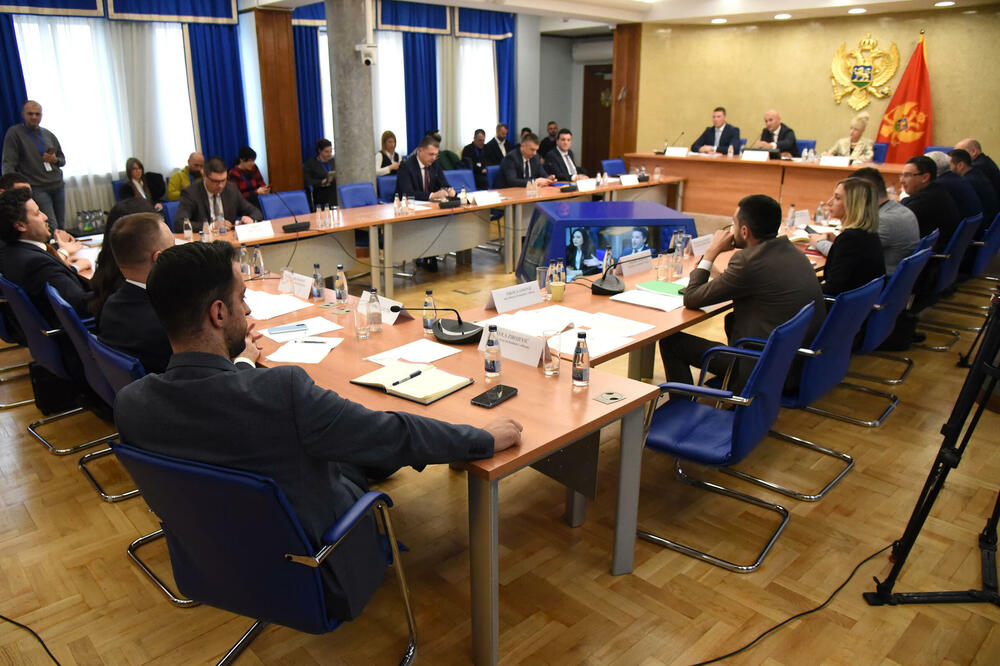The parliamentary committee debate showed much, but shed little light. Although, look at the paradox, it is much clearer after watching it.
The entire play on the Board, say insiders, points to dramatic conflicts over the control of the so-called of the security sector. Of course, someone will say - they won't argue about culture, you can be sure. Even though it's nicer with "culture", they know very well where the "real" power is.
It is obvious that decades are behind us when that kind of power in this society was exempt from any kind of serious control. It was, in one way or another, a service dedicated to preserving and increasing the personal and party power of a leader and his interest-business circle. Such a position has given individuals a power that belongs to no one in democratic societies.
When today, politicians who should make a clear departure from such practices, are fighting for the control of the security sector, do they count on having the old kind of power at their disposal, exactly what they criticized when they were far from real power, that is - the opposition? Because that's exactly what it looks like. It is felt in the intonation Udba's voluptuousness when someone is told about a meeting, a departure, the behavior of a girlfriend or a relative... That is, some information whose origin is clearly police.
That is interesting, perhaps indicative - local politicians are happiest when they take the attitude of investigators. And you have countries where politicians want to look like teachers.
The meaning of the fight against bad government was precisely to change the way the government leads, thus shaping society. After three years, the impression is that the new government wanted not to "repair" society, but to take over the governance models that we all saw as - bad. From party recruitment to abuse of power. This is actually the most pessimistic insight that is possible in today's Montenegro.
Again, as far as I understand what has been said, almost all participants in this parliamentary reality show emphasize that they are concerned about the further fight against crime in Montenegro. If the option they are advocating for does not win, they emphasize that the fight is over, and that whoever does not agree with them works for the mafia.
First - what fight against crime? It's just a figure of speech for now. It has only scratched the surface, no truly devastating blow has struck the heart of criminal power. There were some arrests, which were more of a media attraction than a serious legal victory. (Because, in the judiciary, "there are still guards everywhere" Vesna, not Draža.)
And the key question - can such politicians, whom the whole of Montenegro has watched all day in unworthy discussions, can they really support the fight against crime without it turning out to be a parody, that is, just raising dust without effect and in search of the so-called political points? Because such an attitude is the ideal humus from which the mafia grows and flourishes most luxuriously...
Despite the efforts of some participants in the discussion, we saw a tiresomely low intellectual level.
Finally, one more irritating detail. In public polemics with each other, domestic politicians exaggerate the use of the word "sir". Especially in occasions that I can hardly even associate with lordship. Like a chorus, it echoes "Mr. this or that", although sharp and threatening looks and gestures go along with it. Maybe they think that repeating "sir" over and over gives a more polite tone to what they're saying, even when it comes to elementary nastiness? Or they think that they seem superior in their elaboration if they constantly, even with some accusing tone, repeat it "sir".
This was followed by a confused announcement by the Board, with which they achieved what they did not want - they fully confirmed the statements of the text that they wanted to dispute. But, after all, it seems that what hurt them the most was that they - "turned green". It is unusual with colors - in that "greenness" one sees - yellowness, some blackness. And the rest of Montenegro can be surprised that no one blushed.
Bonus video:





